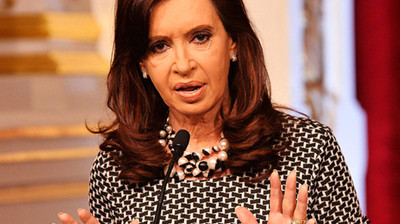Argentina defaults

Argentinaclaims that paying the hold-outs was impossible. It is not just that they are “vultures” as Argentine officials often put it, who bought the bonds for cents on the dollar after the previous default and are now holding those who accepted the restructuring (accounting for 93% of the debt) to ransom. The main problem is that a clause in the restructured bonds prohibitsArgentinafrom offering the hold-outs better terms without paying everyone else the same. Since it cannot afford to do that, it says it had no choice but to default.
譯文屬譯生譯世











